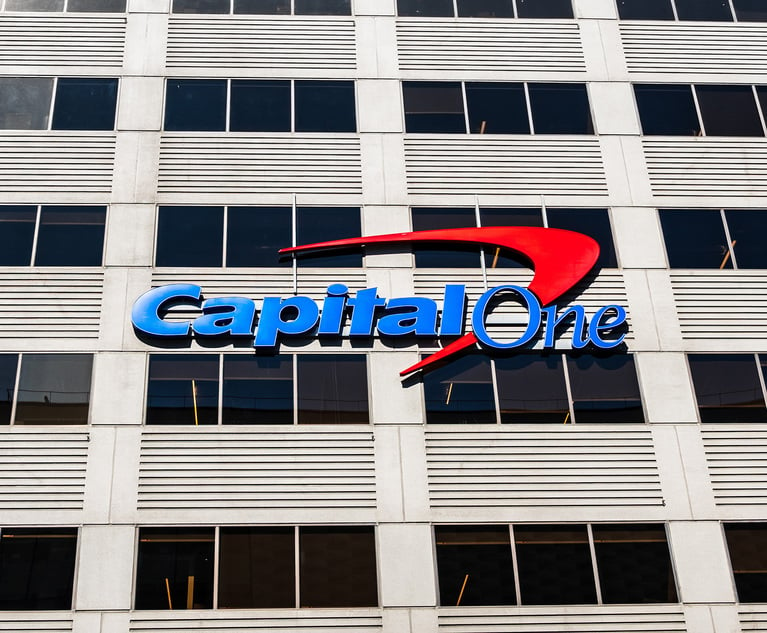Washington My Health My Data Act FAQs: Data Subject Rights
Like so many other features of the MHMDA, data subject rights are deceptively complicated and have the potential to create significant administrative hurdles to getting it right. In this article, we examine the tricky issues in our MHMDA FAQs and take a deep dive into data subject rights.
April 17, 2024 at 02:41 PM
7 minute read
What You Need to Know
- The MHMDA provides consumers with the right to know/access consumer health data, the right to have such information deleted and the right to withdraw consent that had previously been granted.
- In spite of the onerous and at times confusing requirements of the MHMDA, the Washington AG has only published a short set of FAQs to help address some of this uncertainty.

On April 27, 2023, the Washington State governor signed into law the My Health My Data Act or the MHMDA. In spite of the onerous and at times confusing requirements of the MHMDA, the Washington Attorney General (AG) has only published a short set of Frequently Asked Questions to help address some of this uncertainty.
Like so many other features of the MHMDA, data subject rights are deceptively complicated and have the potential to create significant administrative hurdles to getting it right. As promised in our recent summary of the MHMDA ("MHMDA: Time to Comply"), we are examining in more detail these tricky issues in our MHMDA FAQs and have done a deep dive into data subject rights in this FAQ.
This content has been archived. It is available through our partners, LexisNexis® and Bloomberg Law.
To view this content, please continue to their sites.
Not a Lexis Subscriber?
Subscribe Now
Not a Bloomberg Law Subscriber?
Subscribe Now
NOT FOR REPRINT
© 2025 ALM Global, LLC, All Rights Reserved. Request academic re-use from www.copyright.com. All other uses, submit a request to [email protected]. For more information visit Asset & Logo Licensing.
You Might Like
View All
GOP Now Holds FTC Gavel, but Dems Signal They'll Be a Rowdy Minority
6 minute read
'Reverse Robin Hood': Capital One Swarmed With Class Actions Alleging Theft of Influencer Commissions in January

FTC's Info Security Action Against GoDaddy Sends 'Clear Signal' to Web Hosting Industry: Expert
Law Firms Mentioned
Trending Stories
- 1Roundup Special Master's Report Recommends Lead Counsel Get $0 in Common Benefit Fees
- 2Georgia Justices Urged to Revive Malpractice Suit Against Retired Barnes & Thornburg Atty
- 3How Gibson Dunn Lawyers Helped Assemble the LA FireAid Benefit Concert in 'Extreme' Time Crunch
- 4Lawyer Wears Funny Ears When Criticizing: Still Sued for Defamation
- 5Medical Student's Error Takes Center Stage in High Court 'Agency' Dispute
Who Got The Work
J. Brugh Lower of Gibbons has entered an appearance for industrial equipment supplier Devco Corporation in a pending trademark infringement lawsuit. The suit, accusing the defendant of selling knock-off Graco products, was filed Dec. 18 in New Jersey District Court by Rivkin Radler on behalf of Graco Inc. and Graco Minnesota. The case, assigned to U.S. District Judge Zahid N. Quraishi, is 3:24-cv-11294, Graco Inc. et al v. Devco Corporation.
Who Got The Work
Rebecca Maller-Stein and Kent A. Yalowitz of Arnold & Porter Kaye Scholer have entered their appearances for Hanaco Venture Capital and its executives, Lior Prosor and David Frankel, in a pending securities lawsuit. The action, filed on Dec. 24 in New York Southern District Court by Zell, Aron & Co. on behalf of Goldeneye Advisors, accuses the defendants of negligently and fraudulently managing the plaintiff's $1 million investment. The case, assigned to U.S. District Judge Vernon S. Broderick, is 1:24-cv-09918, Goldeneye Advisors, LLC v. Hanaco Venture Capital, Ltd. et al.
Who Got The Work
Attorneys from A&O Shearman has stepped in as defense counsel for Toronto-Dominion Bank and other defendants in a pending securities class action. The suit, filed Dec. 11 in New York Southern District Court by Bleichmar Fonti & Auld, accuses the defendants of concealing the bank's 'pervasive' deficiencies in regards to its compliance with the Bank Secrecy Act and the quality of its anti-money laundering controls. The case, assigned to U.S. District Judge Arun Subramanian, is 1:24-cv-09445, Gonzalez v. The Toronto-Dominion Bank et al.
Who Got The Work
Crown Castle International, a Pennsylvania company providing shared communications infrastructure, has turned to Luke D. Wolf of Gordon Rees Scully Mansukhani to fend off a pending breach-of-contract lawsuit. The court action, filed Nov. 25 in Michigan Eastern District Court by Hooper Hathaway PC on behalf of The Town Residences LLC, accuses Crown Castle of failing to transfer approximately $30,000 in utility payments from T-Mobile in breach of a roof-top lease and assignment agreement. The case, assigned to U.S. District Judge Susan K. Declercq, is 2:24-cv-13131, The Town Residences LLC v. T-Mobile US, Inc. et al.
Who Got The Work
Wilfred P. Coronato and Daniel M. Schwartz of McCarter & English have stepped in as defense counsel to Electrolux Home Products Inc. in a pending product liability lawsuit. The court action, filed Nov. 26 in New York Eastern District Court by Poulos Lopiccolo PC and Nagel Rice LLP on behalf of David Stern, alleges that the defendant's refrigerators’ drawers and shelving repeatedly break and fall apart within months after purchase. The case, assigned to U.S. District Judge Joan M. Azrack, is 2:24-cv-08204, Stern v. Electrolux Home Products, Inc.
Featured Firms
Law Offices of Gary Martin Hays & Associates, P.C.
(470) 294-1674
Law Offices of Mark E. Salomone
(857) 444-6468
Smith & Hassler
(713) 739-1250









